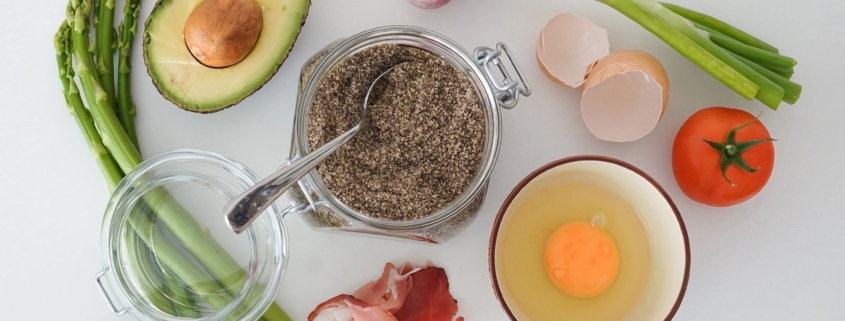Introduction
Did you know that as we age, our nutritional needs also change? It may seem odd, but as we age, our bodies start to require more of certain nutrients and less of others. This is often the result of the wear and tear our bodies have been through over the years. As we grow older, our internal organs function at a slower rate than those of young adults. Now, when I say ‘older adults’, I am speaking to those who are 50+. It is at this point in life where our bodies require a little more assistance in living a healthful life. Aging is something we all dread, but with proper nutrition, we can help ourselves to age better!
Less Calories, More Protein
It’s important to note that even though older adults require less calories than young adults, their nutrient needs often increase, especially when it comes to protein. As we age, our bone and muscle mass usually decline due to less physical activity which is why eating enough protein is so important. The loss of muscle mass is referred to as sarcopenia. Sarcopenia is one of the leading causes of fractures and weakness among the elderly population. The RDA for protein is 0.8-1 gram per kilogram of body weight for a healthy individual but may differ depending on activity level. Consuming enough protein and adding in some resistance training at least 3 times a week can help prevent muscle loss in our later years.
What To Eat
With all this talk about increasing protein intake, you are probably wondering what foods contain enough of the nutrient. Lucky for you, there are several options right at your fingertips! Foods such as chicken, pork, seafood, beans, and lentils are all excellent sources of protein. These foods also provide essential nutrients like calcium, vitamin D, vitamin b12 and fiber: a necessity as we age. Consuming more fruits, vegetables, and lean proteins like chicken and fish provide us essential nutrients without the excess calories.
Nutrients and Supplements
As we age, our ability to absorb nutrients like vitamin b12 and vitamin D declines as the result of certain medications or the decrease in our metabolic rate. Due to decline, some individuals may want to consider supplementing these nutrients, along with calcium if they are unable to meet their daily requirements through their food choices. These nutrients are key to strong bones which is why they are crucial to the older population. Supplementation is usually the last resort but becomes more common the older we get. Insufficient nutrient intake may also lead to constipation in elderly individuals because of poor fiber intake. Fiber can be found in leafy green vegetables and fruits like apples and bananas.
Conclusion
Bringing everything together, we can conclude that nutritional needs change in different ways as we age. Our calorie needs decrease but our nutrient needs increase. It seems counter-intuitive but the only way to achieve optimal nutrient intake is by consuming more fruits, vegetables and lean meats which will ultimately lead to a decrease in overall caloric intake since these foods are typically lower calorie. Getting old doesn’t have to be scary and we can boost our health and slow our aging by a few simple changes in our nutrition!




